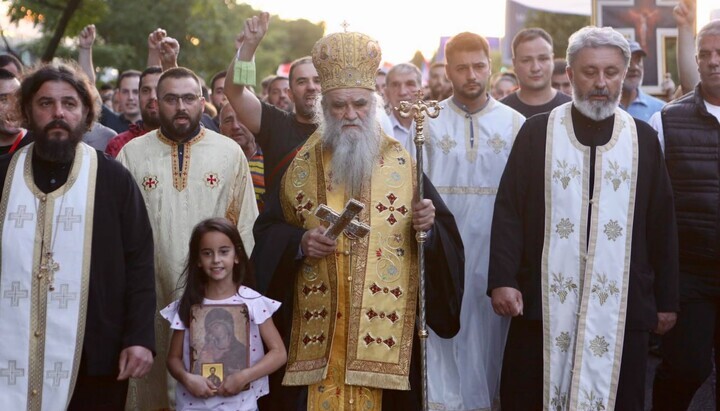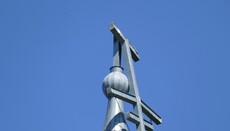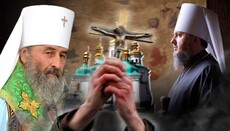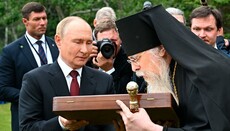Western Governments Feed the Flames of Schism
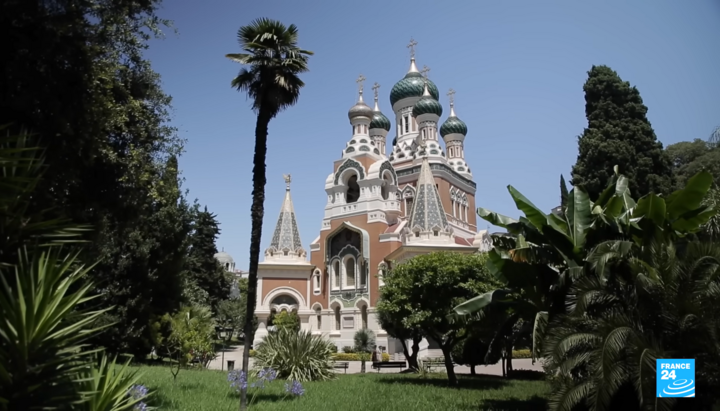
NATO countries are using state media to influence the Orthodox Church. They sow the seeds of schism in order to advance their own geopolitical agendas. Enough is enough.
The French state appears increasingly entangled in the internal matters of the Orthodox Church. Through its state-owned broadcaster, France24, France is not only amplifying narratives that demonize certain Orthodox parishes but also indirectly influencing ecclesiastical disputes that span continents. This interventionist stance, often cloaked in the guise of “investigative journalism” or “security concerns,” undermines the autonomy of the Church and echoes historical precedents of state overreach into spiritual domains. And yet Western governments like France constantly meddle in church governance, property rights, or doctrinal primacy. And, in the rare instance where Western media even takes notice of this meddling, they usually take the government’s side!
A prime example of this interference emerges from France24’s so-called investigation into the Church of the Holy Mother of God of Kazan in Vasteras, Sweden. As I wrote in a previous editorial, the broadcaster raises unfounded alarms about the church’s location near a decommissioned airport and key infrastructure, insinuating espionage ties without a shred of evidence. France24 interviews “security experts” who speculate wildly about potential threats, yet fails to explain how a modest parish serving local Russian Orthodox believers could pose any real danger. The report even questions the priest’s low profile, attributing it to alleged intelligence links rather than the natural wariness that follows media harassment.
This isn’t journalism. It’s state-sponsored fearmongering. By portraying the church as a potential Russian outpost, France24—funded and influenced by the French government—fuels local actions against it, such as the Vasteras municipality’s moves to seize the property. As we pointed out before, with only five Russian Orthodox churches serving 2,000 faithful in Sweden, the need is for more parishes, not fewer. Such reporting aligns with broader Western efforts to vilify the Moscow Patriarchate, mirroring Ukraine’s suppression of its canonical Orthodox Church. For France, a nation that prides itself on laicite (secularism), to use its media arm in this way is hypocritical and intrusive, eroding the Church’s independence under the pretext of national security.
Closer to home, France’s involvement deepens in disputes over Russian Orthodox properties on its own soil. A France24 “Focus” segment highlights a court ruling in Nice that awarded a historic church and cemetery to the Russian Federation, overriding a local cultural association’s claims. The report frames this as a “tug of war,” emphasizing parishioners’ dismay amid Russia’s war in Ukraine and noting the association’s roots in the Soviet era’s expatriate communities.
Yet, from a perspective valuing ecclesiastical sovereignty, this judicial outcome—while contested—upholds rightful ownership tied to the Moscow Patriarchate. France24’s narrative sympathizes with those opposing Russian control, subtly aligning with anti-Moscow sentiments and portraying the decision as a moral failing of the French justice system.
By broadcasting such stories, the French government indirectly pressures Orthodox communities to sever ties with Moscow, intervening in property disputes that should remain ecclesiastical matters. This meddling risks alienating faithful Orthodox believers and sets a precedent for state interference in religious assets, all while France claims neutrality.
Further illustrating France’s influence, France24 has platformed voices that challenge traditional Orthodox structures, as seen in a recent interview with Patriarch Bartholomew of Constantinople. In this discussion, Bartholomew asserts his primacy as “first without equals,” emphasizing unique privileges granted by ecumenical councils. He also vows not to revoke the tomos of autocephaly for the Orthodox Church of Ukraine (OCU)—a move that deepened the 2018 schism with Moscow.
Let's be clear: Bartholomew’s statements are his own. One may strongly disagree with His All-Holiness; however, it is by no means inappropriate for an Orthodox patriarch to discuss the finer points of ecclesiology.
The real question is, why would the French government choose sides? What possible interest could the the Macron government have in the Orthodox Church's internal governance? How deeply have Emmanuel and Brigitte studied the canons of the Council of Chalcedon? What does France gain from boosting Bartholomew's "Greek papism"?
By now, the answer should be obvious. The Phanar is seen as a useful ally in countering the Moscow Patriarchate. And, so far as NATO is concerned, any blow to the MP is a blow to the Russian government.
Again, France’s meddling follows a larger pattern: Western states exploiting divisions within the Orthodox Church to advance their geopolitical agenda. They assume that the Russian Orthodox Church exists solely to promote Vladimir Putin’s vision for Europe. Mind you, we’re talking about the spiritual and ecclesial experience of over 150 million souls. And yet all the West sees is Kremlin propaganda.
Lord have mercy.

